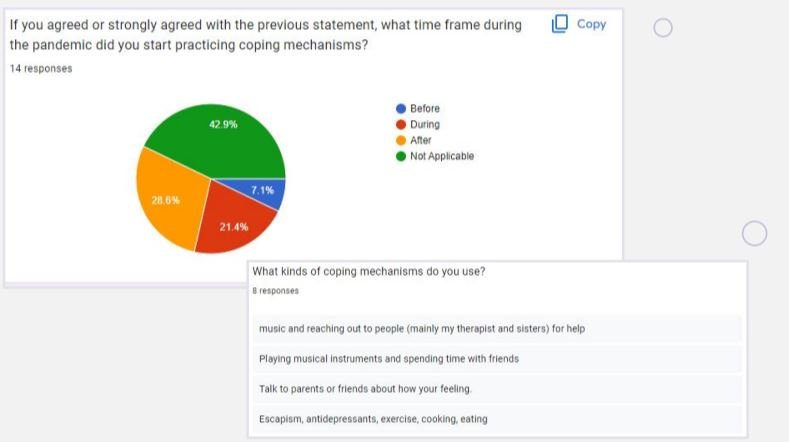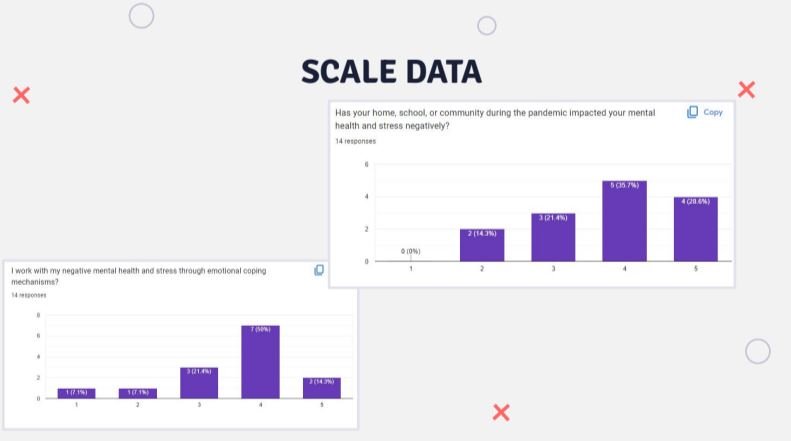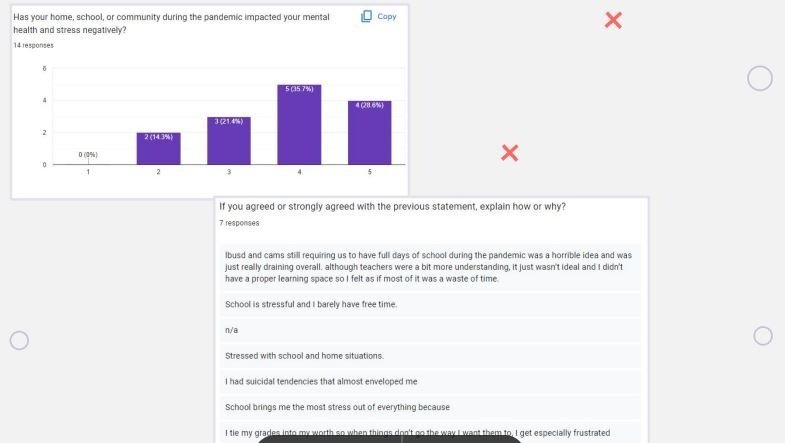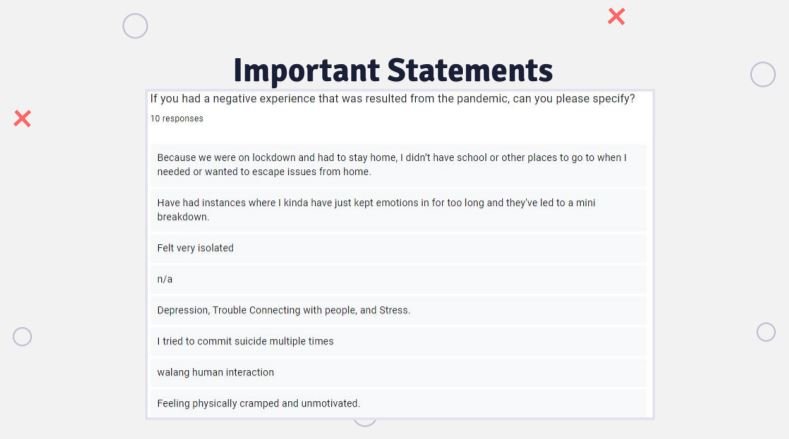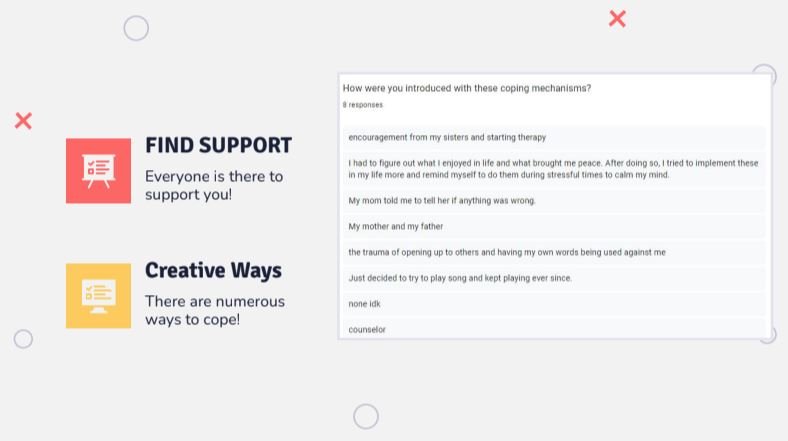Rooted Leader: Kyla
Mental Health in the wake of COVID-19
How did COVID impact the mental health for teens and young adults and how to improve through coping mechanisms?
Kyla worked to better understand the impact of the COVID-19 pandemic on the mental health of high schoolers in her community. Check out her findings and organizing work below!
KEY STAKEHOLDERS
Constituents: Teens and Young Adults in the range of 13-19 and up at nearby high schools.
Kyla gained insight information from the targeted audience. In the high school itself, she is planning to teach presentations and bring awareness on mental health through volunteering or donations. With the insight, Kyla gathered information on how COVID impacted the mental health during the times and how did it impact others.
Allies: Friends & Teens
With the help of friends and teens, getting the message across can bring awareness through the outreach. Using peers for presentations and activities can encourage others to join around. As allies would help donate with pledges and learn information about the mental health, they can create a big difference in the community.
Key Decision Makers: School administration
Kyla is planning to go to the school administration to present workshops with activities. Teens are going to learn about coping mechanisms during their negative experience, and to share it with others for a big impact in the community. With trying to spread awareness, Kyla is planning to use social media and websites for others to reach out to youth and young adults as well. Kyla is planning to build pledges and donations to a specific charity.
Check out quotes and data from Kyla’s community assessment survey
RECOMMENDATIONS
Check out Kyla’s recommendations for youth and adults in addressing mental health challenges
Improve coping mechanisms. I have found out that youth are not heard about their impacts through COVID and their coping mechanisms. Improving the coping mechanisms with teens and young adults can strive on improving the mental health after COVID.
Share stories. Teens and young adults are highly able to participate when given the opportunity to share their stories. Their stories allows them to open up and process the emotions that COVID and the community negatively.
Listen to students. Schools and communities should hear the voices of the students when mental health has taken a significant increase negatively. No matter the age, the range is high and the percentage should not be higher based on the environment a person is in.






